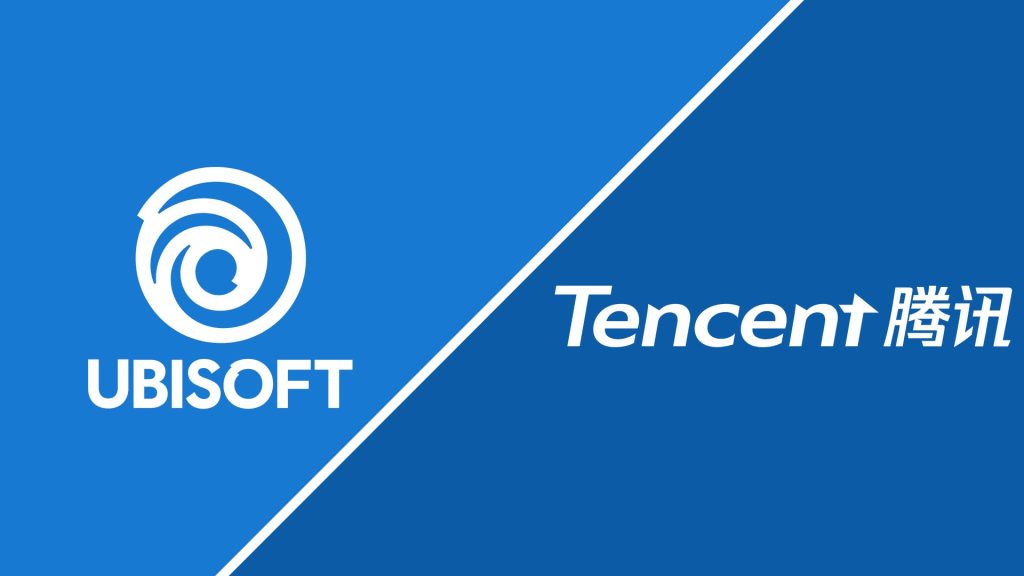Tencent, the Chinese tech giant, has consistently expanded its reach in the global gaming industry, and its the Tencent Ubisoft acquisition exemplifies this ambitious strategy. As one of the largest video game publishers worldwide, Tencent aims to solidify its foothold in Western markets, which have proven both challenging and lucrative for international developers. Ubisoft, renowned for blockbuster franchises like Assassin’s Creed and Far Cry, faces financial struggles and underperforming projects, making the potential acquisition a critical opportunity for both companies.
This acquisition not only represents a potential rescue for Ubisoft but also allows Tencent to leverage the French developer’s creative talent and intellectual properties. As speculation mounts regarding the terms and implications of the Tencent Ubisoft acquisition, industry analysts and fans are keen to understand what this move could mean for the future of game development, business models, and player experiences in an evolving gaming landscapeSeeking Alpha 80 Level. With the gaming community closely monitoring this situation, the potential for significant changes within the industry looms large.
Read Also : Will Knull Be the Villain in Spider-Man 4?
A Strategic Stake in Ubisoft
In 2022, Tencent made headlines by purchasing a substantial stake in Ubisoft through shares acquired from the Guillemot family, the founders of Ubisoft. This strategic move brought Tencent’s influence closer to the heart of the French developer without granting it full control. By increasing its ownership to approximately 49.9% of the Guillemot Brothers’ holding company, Tencent positioned itself as a major player in Ubisoft’s operations. Now, with ongoing discussions about a complete acquisition, the gaming community is abuzz with speculation about the implications for both companies.
The potential Tencent Ubisoft acquisition could lead to significant changes in Ubisoft’s direction. Analysts suggest that this partnership may allow Tencent to leverage its extensive resources and expertise in monetizing games, especially in mobile and online markets where it excels. As Tencent seeks to bolster its influence in Western gaming, acquiring Ubisoft would provide access to some of the most beloved franchises in the industry, creating opportunities for cross-platform development and innovative marketing strategies. However, as discussions progress, stakeholders are closely monitoring how Tencent’s growing role might affect Ubisoft’s creative autonomy and existing business practices.
Ubisoft’s Financial Troubles
Ubisoft has encountered significant challenges in recent years, marked by delays in several key titles and disappointing financial results. Major projects, including sequels to beloved franchises, have either been postponed or failed to meet sales expectations, causing the company’s stock price to plummet to an 11-year low. These financial troubles have prompted Ubisoft to reevaluate its strategies and explore “strategic options” that could help restore its market position and regain the confidence of its stakeholders.
Read Also : One Piece Fan Letter 2024: Special Episode Release Celebrating the 25th Anniversary
In light of these difficulties, the potential Tencent Ubisoft acquisition presents a timely opportunity for Ubisoft to secure much-needed financial backing and operational support. Analysts believe that Tencent’s vast resources could facilitate a turnaround, providing Ubisoft with the capital necessary to invest in new game development and marketing. Moreover, Tencent’s established expertise in monetization and digital distribution could enhance Ubisoft’s revenue models, potentially revitalizing the brand. However, as Ubisoft navigates these financial hurdles, the prospect of Tencent’s involvement raises questions about the balance of creative freedom versus financial oversight, a critical consideration for both companies as they move forward in this evolving landscape.

Tencent’s Ambitions in Western Gaming
Tencent has long aimed to strengthen its presence in Western gaming markets, and acquiring a significant stake in Ubisoft aligns perfectly with this objective. As one of the largest video game publishers globally, Tencent’s strategy includes diversifying its portfolio and expanding its influence in international markets, particularly in Europe and North America. By positioning itself closer to Ubisoft, Tencent not only gains access to one of the most recognizable names in gaming but also taps into a wealth of creative talent and established franchises.
The potential Tencent Ubisoft acquisition would grant Tencent access to a treasure trove of intellectual properties, including hit series such as Assassin’s Creed and Far Cry. This acquisition opens the door for Tencent to explore cross-promotional opportunities, leveraging its vast user base in mobile gaming to introduce Ubisoft’s franchises to new audiences. Furthermore, Tencent’s financial and technical resources could enable Ubisoft to innovate and enhance its offerings, particularly in emerging areas such as virtual reality and augmented reality games, where Tencent has already made significant investments
Potential Impacts of the Acquisition
If Tencent increases its stake and takes Ubisoft private, significant changes could follow:
- Management Overhaul: Tencent might push for a restructuring of Ubisoft’s management to align with its vision, which could lead to a shift in strategic focus.
- Monetization Strategies: While Ubisoft has affirmed its commitment to open-world adventures and Games as a Service (GaaS), Tencent may advocate for more aggressive monetization tactics, particularly in mobile gaming, where it excels.
- Development Adjustments: The acquisition might result in layoffs or restructuring within Ubisoft as it adapts to new financial objectives, raising concerns about the impact on creative talent and company culture.
Community Reactions and Concerns
As news of the potential Tencent Ubisoft acquisition circulates, reactions within the gaming community have been mixed. Some players express optimism, hoping that Tencent’s resources will lead to improved game quality and more ambitious projects. Supporters argue that Tencent’s vast experience in monetization could enhance Ubisoft’s financial stability, allowing the company to invest in innovative game mechanics and new IPs. They envision a future where Ubisoft can leverage Tencent’s infrastructure to reach wider audiences, particularly in the booming mobile gaming sector.
However, significant concerns also loom. Many fans worry that Tencent’s involvement could compromise Ubisoft’s creative freedom and culture. Critics fear that the company may prioritize profits over artistic expression, leading to a rise in microtransactions and predatory monetization strategies. The specter of layoffs and restructuring as part of the acquisition process further fuels apprehension within the community. The gaming industry has seen similar acquisitions lead to drastic changes in studio dynamics, often resulting in a loss of identity for beloved franchises
Conclusion: A Turning Point for Gaming
The potential Tencent Ubisoft acquisition marks a significant turning point for both companies and the gaming industry at large. As Tencent seeks to solidify its influence in Western gaming markets, Ubisoft stands at a crossroads, grappling with financial struggles while navigating the complexities of such a major partnership. The outcomes of this acquisition could reshape the landscape of game development, influencing not only business practices but also player experiences.
As the situation continues to unfold, the gaming community remains vigilant, eager to see how this partnership evolves and what it ultimately means for the future of Ubisoft and its iconic franchises. Whether the acquisition will yield a more prosperous and innovative Ubisoft or lead to concerns about creative autonomy and corporate oversight is a question that will resonate throughout the industry for years to come.





